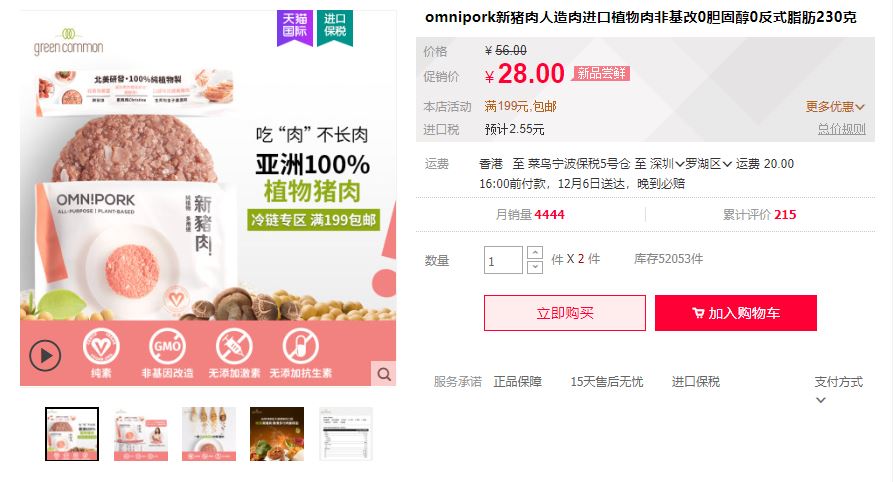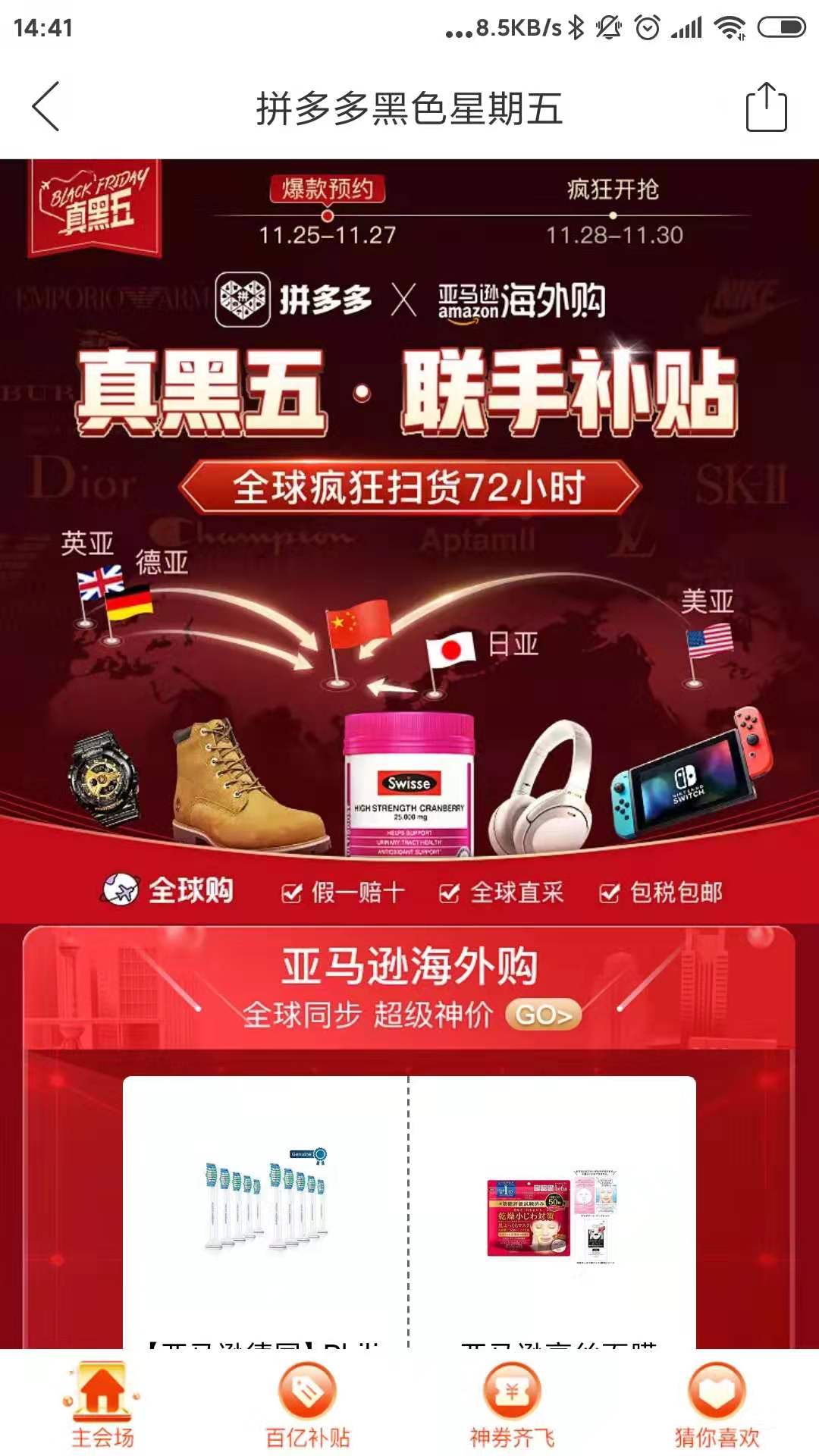Black Friday: China E-Commerce's Best Known Secret?
Black Friday is a popular holiday for Chinese consumers to purchase cross-border imports such as cruelty-free cosmetics and health & wellness products. We take a look at what happened this year.
by Ker Zheng
Black Friday is one of the world's largest retail events, with online sales estimated to have reached a whopping $7.4 billion in the US this year.
But unbeknownst to many, Black Friday is also a major holiday in China, during which consumers purchase cross-border imports such as cruelty-free cosmetics and health & wellness products.
This channel, in which imported goods are shipped directly from abroad or bonded warehouses to Chinese consumers, is estimated to reach US$150 billion in annual sales by the end of 2019.
And Black Friday is one of the biggest days of the year for this category; major platforms such as Tmall, JD.com, and Kaola bombard their customers with Black Friday promotions.
For merchants, there is often less competition for customers and traffic than on Singles Day. It's not uncommon for international brands/retailers to reserve a sizable chunk of their marketing budgets for Black Friday.
We take a look at Black Friday in China 2019 and discuss what happened this year.
Tmall Sold Artificial Man-Made Meat This Year
Tmall's cross-border division Tmall Global surprised customers this year by selling artificial meat for the first time.
With the recent launch of its cross-border cold-chain logistics services, Tmall sold over a ton of Omnipork meat, primarily to younger Chinese consumers in tier 1 cities.

An Omnipork listing. Source: Tmall Global
Also on the menu were plant-based chicken nuggets, plant-based ice cream, raw chocolate, and fresh milk. In the future, Tmall may expand its selection to include cheese, butter, and frozen foods as well.
Why? Quality and organic food products are difficult to find in China, given its polluted environment and shortage of arable land. Many of China's younger consumers are turning to imported products as their purchasing power increases and as they place more of a focus on personal health.
Aside from this, Tmall also invited some of China's hottest influencers to hold live-streaming sessions at its bonded warehouse in Hangzhou. Top influencers Viya, Xiabobo, and Australia-based Beletai participated, selling over 100,000 orders within the three-hour session.
Viya is one of China's most popular live-streaming hosts, and this time over 7.3 million fans tuned in to watch her live-streaming session.
In total, 2,500 brands from over 70 countries held Black Friday promotions; some of the more popular products included Ninest Bird's nest from Thailand, Australian Penfolds red wine, and Indonesian Ellips hair oil.
Pinduoduo: All Eyes on Amazon's Pop-Up Store
In a surprise move, Amazon China launched a pop-up store on Pinduoduo's platform, just days before Black Friday. The store leverages Amazon's global selection of quality goods, selecting 1,000 imported products from the likes of Swisse, Timberland, Nintendo, and more.
And to promote its Black Friday promotions, Pinduoduo pledged to dole out 10 billion RMB of subsidies to guarantee lower prices for loyal customers.
Pinduoduo's cross-border e-commerce platform only launched in April of this year, but the company is still widely perceived by consumers to be a hawker of low-quality, shoddy products.
This is a problem because Pinduoduo needs to move into China's larger cities to reach more affluent customers and raise the average basket value of its transactions, which is estimated to be just one-third of that of JD.com's.
Partnering with a trusted global platform such as Amazon gives it more credibility; consumers are more willing to trust items supplied by Amazon.
The Amazon China-Pinduoduo pop-up store is open until the end of the year. If results are good then Pinduoduo and Amazon may enter into a longer, deeper partnership and become a strong contender in China's import cross-border e-commerce industry.

Amazon's Pop-Up Store on Pinduoduo Source: Pinduoduo Official Mobile App
Kaola: Targeting the Male Consumer
Following its recent sale to Alibaba earlier this year, Kaola flexed its new combined resources by guaranteeing delivery times of 1-3 days for imported products.
With the bonded warehouse model, merchants place large quantities of inventory in China's free trade zones to speed up the delivery process.
This year saw a particular uptick in sales amongst male consumers, who purchased light luxury products, apparel, footwear, furniture, and watches. Many of the consumers were born after 1995.
In total, brands from over 80 countries participated, including Tumi, Ermenegildo Zegna, Versace, Gucci, and Burberry. Top products included Air Jordan co-branded edition sneakers and Off White apparel, as upscale streetwear has taken off in China over the last two years or so.
JD.com and JD Worldwide: On the Defensive
This year saw increased pressure on JD.com's import division as Alibaba purchased Kaola, increasing its share of the market to over 50%.
In response to Pinduoduo's 10 billion RMB in discounts, JD.com pledged 10 billion RMB of its own to guarantee lower prices for its customers.
JD.com also released a rap video to draw attention to its Black Friday promotions, which lasted from November 22nd to December 1st.
The video highlights popular products floating through space and is designed to draw attention to cross-border e-commerce, which is still a relatively new concept to many of JD.com's general customers.
Lastly, JD.com also changed the name of its import business from Overseas Dolphin International to JD Worldwide. JD Worldwide sells products from both general trade and cross-border e-commerce import channels, as opposed to pure cross-border e-commerce items.
Key Takeaways
1. Black Friday is an important sales holiday for international merchants selling cross-border imports in China. Competition for traffic and customers is oftentimes less fierce than it is for Singles Day.
2. Tmall used the special occasion to sell imported artificial meat products for the first time. It also invited top influencers to livestream products from its bonded warehouses in Hangzhou.
3. Pinduoduo set up an Amazon pop-up shop to sell over 1,000 imported products. Pinduoduo is looking to improve its reputation and sell more premium products to raise the average basket value of its transactions. Kaola focused on selling to male consumers this year, while JD.com announced 10 billion RMB worth of subsidies and launched a rap video.